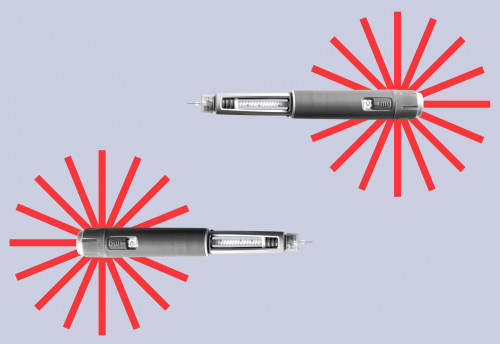TikTok challenges encourage play, art museums get in on the fun, and brands play with logos.
Our New Sponsorship Economy: Will You Innovate, or Simply Maintain?
When Mark McCormack founded IMG in 1960, the commercial sports industry was in its infancy and laying the foundation to become the multibillion-dollar global landscape we know today. Fast forward to 2020, a sports year filled with golden opportunities: Summer Olympics, Ryder Cup, continued rise of women’s sports, and growth of new platforms like esports and sports gambling. However, our 2020 looks very different than what we imagined just a few months ago.
One global impact of the coronavirus has been billions lost from canceled events. And when we finally hear those famous words of “Play Ball” echo across the industry, events will likely take place without fans or, at most, be a modified experience with socially distanced spectators who are screened and monitored diligently. Living in a world with postponed sports has put many brands and properties in a position where they must have a difficult conversation. Typically, those conversations come at a turning point in a relationship with a new opportunity or a renewal, not during mass cancellations and business closures.
Initially, the sponsorship economy was built on a foundation of ambiguously defined metrics and values with most brands highlighting the notoriety of the “Official X Company of Y Team.” However, as the industry evolved, sponsorship has become more intelligent and buyers and sellers are making more data-informed decisions than ever before. This evolution has been amplified as all parties look to understand the impact this pause will have in the short and long term. A new playbook is needed so properties can accurately value their media, audience and brand impact.
As ever, there will be innovators and maintainers. Innovators will shape new norms to govern the industry moving forward by evolving their sponsorship offering to become more custom and transparent. They will establish strategic relationships and create new versions of themselves with unique offerings such as game-moment dynamic signage, new content strategies, platforms and immersive experiences, complemented by a deeper understanding of their fan base to more effectively engage with fans and attract partners. The maintainers will retain most partners but will struggle post-coronavirus as we enter the modern sponsorship economy in a buyer’s market.
Our industry relies on media and sponsorship investments not only to operate, but to thrive. In the modern sponsorship economy, properties must be armed with custom data to answer accurately the question all brands and agencies will be asking: “Can you show me the impact generated from this sponsorship?” The industry has been moving toward consistent measurement for some time and the coronavirus aftermath should accelerate completion of the last mile. The measurement leaps our industry took after the 2008 financial crisis were important silver linings and now we can expect a similar result. As an industry, we will be required to demonstrate tangible impact as we begin the task of managing tighter budgets under tremendous scrutiny.
Furthermore, properties and brands must consider the future needs of a post-coronavirus consumer. As we speak, the fan experience is being reimagined to ensure safety throughout their on-site journey and drive engagement beyond the game. Innovators will engage their fans in meaningful conversations to ensure positive experiences as well as identify opportunities for endemic and non-endemic sponsors to join the sports marketing mix. Fans will find their sense of normalcy from medical services, health tracking and technology partners as they become further embedded throughout sports. Maintainers will be challenged to understand how the new demands of our evolving economy driven by innovative brands and properties can be met head-on.
Our post-coronavirus lifestyle is here; and we must start redefining the new sports world. What will the fan of the future look like and how will they shape the industry? Innovative properties will adopt the “think like a brand, act like an agency” mentality. Properties will work with partners to ensure they are aligned by applying robust media and consumer data to develop customized, innovative integrations beyond the game itself; rather than engaging in a glorified, transactional relationship.
The modern sponsorship economy is mutually beneficial as brands like Anheuser-Busch have demonstrated with their performance-based model. However, this only works when brands provide their agencies and property partners visibility into their overall marketing strategy. Sponsorship is one element of the media mix and must be designed to amplify other channels. Full transparency and buy-in are drivers of success in the modern sponsorship economy.
Don’t you believe brands would be willing to spend more if they could make informed investments rooted in media and consumer metrics, all aligned against specific business outcomes? And would you agree that properties should receive incremental investments when they over-deliver audiences, and provide make-goods when they do not deliver on promised impact? That is how most industries, like manufacturing, construction and, of course sports advertising and sponsorship, conduct business; successful players receive contract bonuses while unsuccessful players receive minimal playing time or no contract renewal. This is what the modern sponsorship economy is going to look like.
So, the question is, will you be a maintainer or an innovator?
Opinion Piece By Scott Savran | Senior Manager, Analytics & Property Consulting, Scout Sports and Entertainment
Scott joined Scout Sports and Entertainment, a division of Horizon Media, in 2016 and leads Scout 360, the Property Consulting and Analytics Group. Scott was recognized as a 2020 Cynopsis Media Rising Star for the work he and his team have done in providing insights and strategic analysis, driving $300M+ in sponsorship revenue across their client portfolio.




